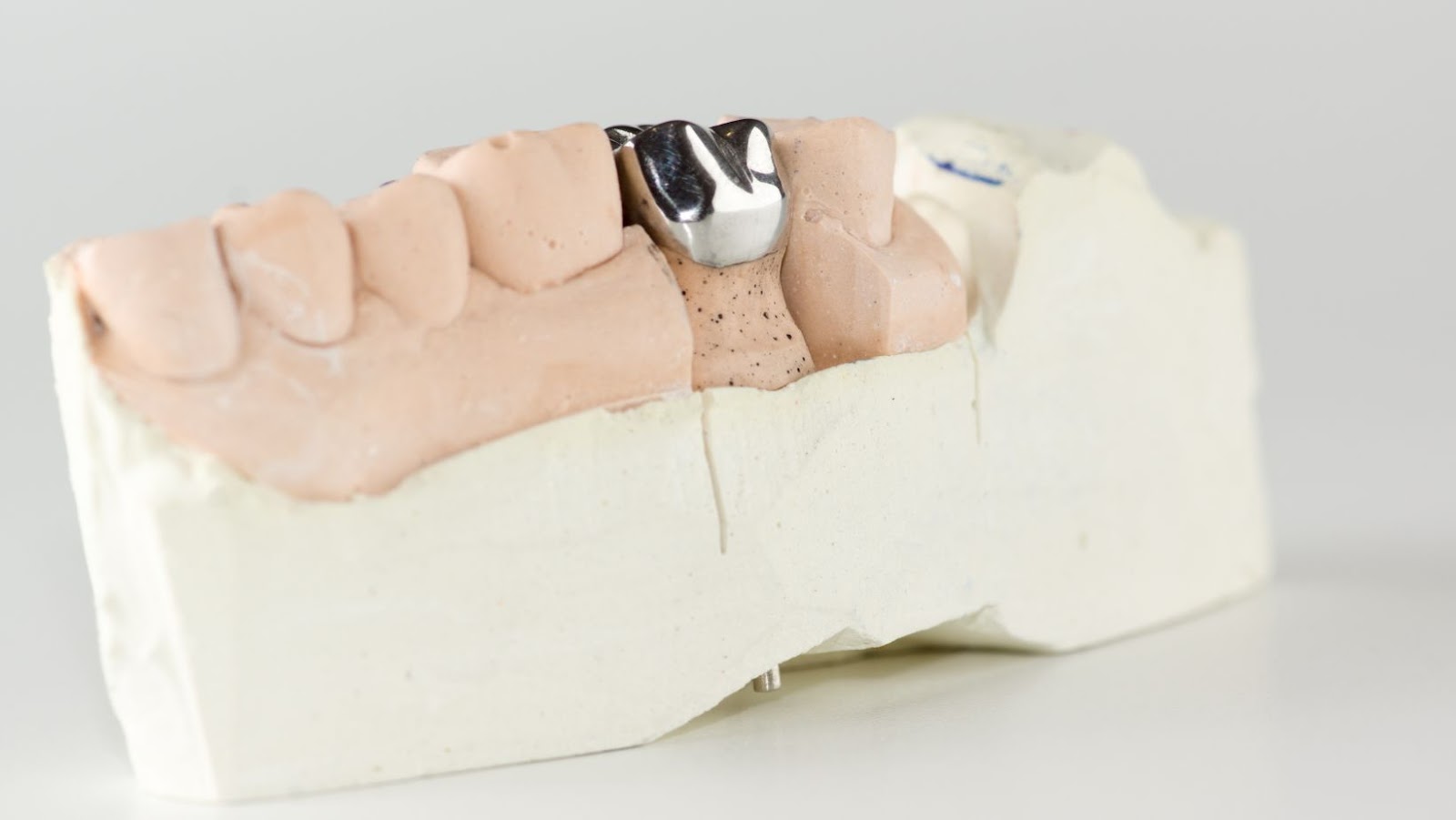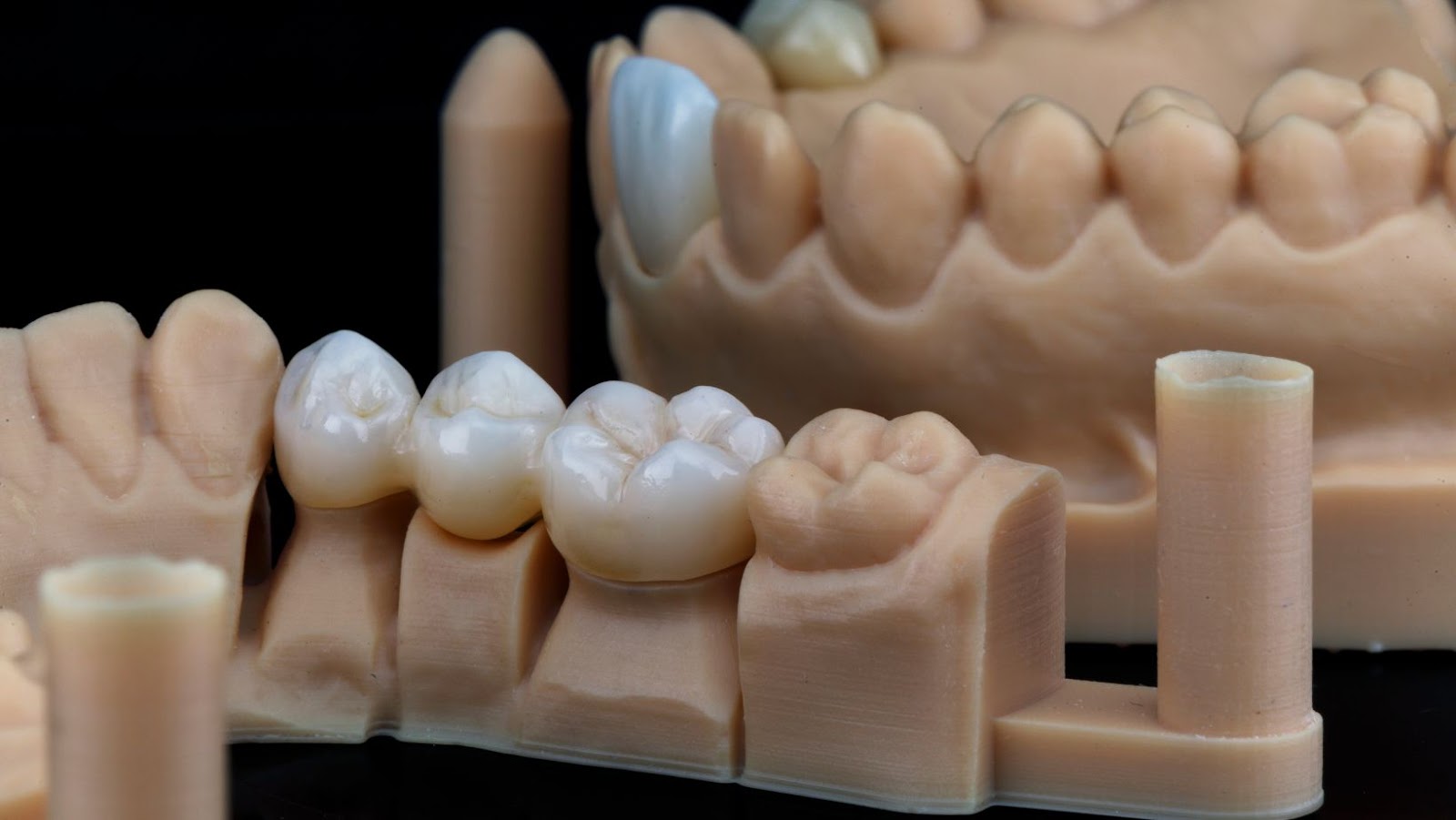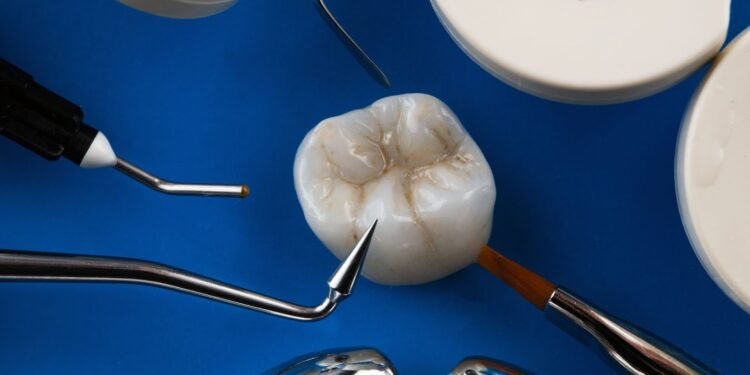Dental crowns are teeth-shaped caps placed over the teeth to restore their shape, size, and strength and enhance their appearance. When your dentist cements a crown, it covers the entire visible section of your tooth that lies above your gum line. Hilliard crowns help to hold dental bridges in place, cover discolored teeth, protect weak teeth from breaking and restore chipped or broken teeth. Dental crowns are designed from strong materials, including resin, porcelain, or metals. There are various benefits of dental crowns, including:
Restores Chewing and Speech
Losing teeth can alter your speech, and you have difficulty pronouncing some words. Teeth chipping, cracking, missing teeth, or decay can hinder you from taking certain food types and drinks. Dental crowns cover all these dental defects. Crowns are made from robust materials that allow you to take all foods and beverages. Crowns replace lost teeth improving your speech.
Crowns are Durable
Dental crowns are designed with string materials making them last for prolonged periods. They last longer than Onlays and inlays and dentures and fillings. Crowns are strong enough to withstand chewing, biting, and grinding while eating. If you maintain the correct oral hygiene and get regular dental checkups, your crowns can last up to thirty years.

They Restore The Appearance of Your Teeth
Dental crowns primarily restore weak or damaged teeth, but they also provide cosmetic benefits. They correct various defects like teeth discoloration, misshapen teeth, chipping, and cracking. If you do not like the shape of your tooth or it got extremely chipped, crowns will cover these issues. Your dentist designs your crown into a shape and color that matches the rest of your teeth, improving your smile.
Relieve Oral Pain and Discomfort
Cracked teeth, thinned enamel, tooth decay, and post-filling can lead to pain and discomfort. If your tooth is damaged, it can become sensitive to temperature or pressure. The remaining tooth needs to be protected if you have a restorative treatment like filling or root canal. Dental crowns prevent further teeth damage and ease sensitivity, pain, and discomfort.
Crowns Save Severely Damaged Teeth
Trauma, stress, and tooth decay can severely damage your outer tooth. If your tooth is so weak and severely broken, your dentist can either extract it or use a dental crown to save it. In case of crown placement, your dentist will clean the harmed tooth and file it to allow your dental crown to fit perfectly. Once in place, your tooth becomes strong and healthy, regaining its full functions.

Dental Crowns Prevent Dead Teeth From Falling Apart
Pulpitis, a condition where your tooth pulp becomes infected, can happen. Sometimes it is irreversible and causes the death of the inner part of your tooth. Your dentist will treat irreversible pulpitis by removing the damaged pulp through a root canal. After the root canal procedure, the dentist will seal the tooth with a filling and then place a crown. Crowing a dead tooth prevents it from breaking into pieces.
Dental crowns are long-lasting caps that restore the entire functioning of your teeth and improve your smile and tooth appearance. Schedule an appointment at Innovative Dental Ideas for crown placement to regain the normal functioning of your teeth.












































































































